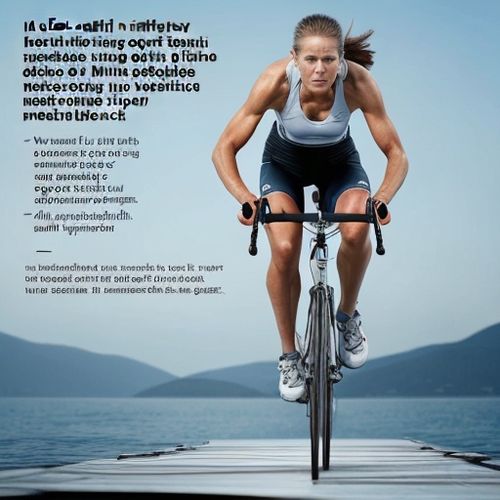The world of nutritional supplementation has evolved dramatically over the past few decades, shifting from a niche market to a mainstream health staple. What was once considered an optional add-on for athletes or those with specific deficiencies has now become a daily ritual for millions. The reasons behind this shift are as varied as the supplements themselves, ranging from modern dietary gaps to the relentless pursuit of optimal health. Yet, beneath the glossy packaging and bold claims lies a complex landscape that demands careful navigation.
Understanding the modern nutritional gap is crucial to grasping why supplements have gained such traction. Our ancestors relied on whole foods grown in nutrient-rich soil, but today's agricultural practices and food processing methods have altered the nutritional profile of many staples. Even with a well-balanced diet, studies suggest that many individuals fall short of essential vitamins and minerals. Factors like prolonged storage, transportation, and cooking methods further deplete nutrients, creating a gap that supplements aim to fill. This doesn't render whole foods obsolete—rather, it highlights how supplementation can serve as a strategic complement to our diets.
The supplement industry has responded to this demand with an overwhelming array of options, making informed selection more important than ever. Walk into any health store or browse online retailers, and you'll encounter shelves brimming with multivitamins, omega-3s, probiotics, and adaptogens. Each category promises distinct benefits, but their effectiveness often hinges on quality, dosage, and individual needs. For instance, not all vitamin D supplements are created equal—the form (D2 vs. D3), the presence of fat for absorption, and the dosage can significantly impact results. This complexity underscores why blanket recommendations rarely work and why personalized approaches yield better outcomes.
Bioavailability remains one of the most overlooked yet critical aspects of supplementation. It refers to how well and how quickly a nutrient is absorbed and utilized by the body. A supplement might contain high doses of a particular vitamin, but if the body can't effectively absorb it, the benefits diminish. This explains why some people report dramatic improvements with certain supplements while others notice little change. Factors like age, gut health, and even the time of day a supplement is taken can influence bioavailability. Emerging delivery methods—liposomal encapsulation or nanoparticle technology—aim to enhance this, but they also come with higher price tags and limited long-term research.
Beyond vitamins and minerals, the rise of phytochemicals and herbal supplements has added another layer to the conversation. Compounds like curcumin from turmeric or EGCG from green tea boast potent antioxidant and anti-inflammatory properties. Unlike synthetic vitamins, these plant-derived substances interact with our biology in nuanced ways, often working synergistically with other compounds in their natural state. This has sparked debates about isolating active ingredients versus using whole-plant extracts. While isolation allows for standardized dosing, whole extracts may provide broader benefits through what scientists call the "entourage effect."
The regulatory landscape presents another dimension worth examining. Unlike pharmaceuticals, supplements don't undergo rigorous pre-market approval in many countries. This places the onus on manufacturers to ensure safety and efficacy, leading to significant variability in product quality. Third-party testing organizations have emerged to fill this gap, offering certifications that verify a product's contents match its label. For consumers, looking for these seals of approval can mean the difference between a worthwhile investment and an expensive placebo.
Personalization is shaping the future of supplementation, moving away from one-size-fits-all approaches. Advances in nutrigenomics—how genes influence nutrient metabolism—allow for tailored recommendations based on DNA analysis. Similarly, microbiome testing can reveal which probiotics might benefit an individual's unique gut flora. While these technologies are still in relative infancy, they represent a paradigm shift from guessing to knowing what our bodies truly need. This doesn't negate the value of general wellness supplements but offers a more precise toolkit for those seeking optimized health.
As research continues to evolve, so too does our understanding of supplementation's role in longevity and disease prevention. Some studies suggest certain nutrients in specific forms may help mitigate age-related decline or reduce chronic disease risk. However, these findings often come with caveats about dosage, duration, and individual variability. What remains clear is that supplements work best as part of a holistic approach—they can enhance, but not replace, foundational health practices like balanced nutrition, regular exercise, and stress management.
The conversation around nutritional supplementation is far from simple, filled with both promise and pitfalls. As science advances and consumer awareness grows, the industry faces increasing pressure to deliver transparent, evidence-based products. For individuals navigating this space, the key lies in balancing optimism with skepticism—recognizing supplements' potential while demanding rigorous standards. In doing so, we move closer to realizing their true role in supporting health without falling prey to exaggerated claims or unnecessary excess.

By William Miller/May 9, 2025

By John Smith/May 9, 2025

By Lily Simpson/May 9, 2025

By Eric Ward/May 9, 2025

By Eric Ward/May 9, 2025

By Victoria Gonzalez/May 9, 2025

By Samuel Cooper/May 9, 2025

By Emily Johnson/May 9, 2025

By Noah Bell/May 9, 2025

By Joshua Howard/May 9, 2025

By Eric Ward/May 8, 2025

By Joshua Howard/May 8, 2025

By George Bailey/May 8, 2025

By Grace Cox/May 8, 2025

By Michael Brown/May 8, 2025

By Daniel Scott/May 8, 2025

By Rebecca Stewart/May 8, 2025

By Victoria Gonzalez/May 8, 2025

By Emily Johnson/May 8, 2025

By Olivia Reed/May 8, 2025